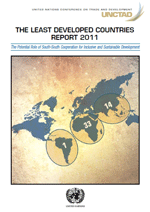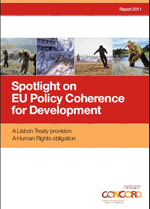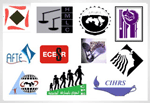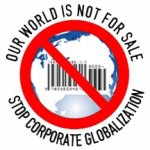Social Watch news
Published on Fri, 2011-11-25 08:20
Profits have ballooned in recent years, but African states haven’t seen their fair share. It’s time to look beyond the woefully inadequate compensation of voluntary corporate social responsibility actions by mining firms in Africa, wrote Yao Graham, co-ordinator of Third World Network-Africa (TWN-A), a pan-African policy research and advocacy organization based in Accra.
|
Published on Thu, 2011-11-24 07:55
South-South cooperation can be conducive to the emergence of an effective and stronger State in Least Developed Countries (LDCs), according to UNCTAD´s most recent report, which proposes a new type of developmental State for LDCs --one that is more appropriate to the specific vulnerabilities and the structural constraints of LDCs.
|
Published on Wed, 2011-11-23 08:07
All over the developing world, European Union (EU) policies continue to seriously undermine people's rights, because these policies are not coherent with development objectives. The EU fails to comply with its own treaty obligations, according to a new study released by the European NGO Confederation for Relief and Development (CONCORD), reported the African Press Organization (APO).
|
Published on Tue, 2011-11-22 09:28
International development cooperation “is and must be regarded as a global public good” and with full participation of the civil society, according with the contribution of a thousand Latin American and Caribbean organizations to the 4th High Level Forum on Aid Effectiveness that will be held next week in Busan, South Korea.
|
Published on Mon, 2011-11-21 07:45
Thirty-nine Egyptian human rights and development organizations have drafted a new law to regulate NGOs and sent a copy to Prime Minister Essam Sharaf. The proposed law provides for the autonomy of Egyptian civil society organizations from the state and its administrative apparatus. At the same time, it guarantees the transparent operation of these organizations in terms of their activities and sources of funding.
|
Published on Fri, 2011-11-18 07:53
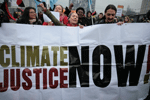
Photo: CSA
|
Civil society is not standing with arms crossed in view of the seeming impasse of the deliberations on the way to the United Nations Climate Change Conference that will begin on Nov 28 in Durban, South Africa. Dozens of organizations launched an urgent call to persuade the industrialized countries to renew their commitment to reduce their greenhouse gas emissions, and they also prepare mobilizations for climate justice all over the world for the next week, on the eve of the meeting.
|
Published on Fri, 2011-11-18 07:50
“Science says that Africa's geo-physical characteristics make it liable to warm up one-and-half times the global average. Any more warming beyond a critical threshold will in the words of the Ambassador Lumumba Di- Aping of Sudan, then Chair of G77, result in the ‘incineration of Africa’,” warns African Agenda, magazine published by Third World Network-Africa.
|
Published on Fri, 2011-11-18 07:48
The Group of 77 and China, the Alliance of Small Island States, the Bolivarian Alliance for the Peoples of Our America (ALBA), the African Group, and the Least Developed countries called for the preservation of the Kyoto Protocol in the last official preparatory meeting for the United Nations Climate Change Conference in Durban, reported Meena Raman, legal advisor and researcher of the Third World Network.
|
Published on Thu, 2011-11-17 08:36

Nicole Werner
(Photo: Alliance Sud)
|
Yet another UN climate conference will take place at the end of November in Durban, South Africa. It is the last chance to seamlessly replace the Kyoto Protocol – which expires in 2012 – with a follow-up protocol, warned Nicole Werner, expert on environment and climate of Alliance Sud, focal point of Social Watch in Switzerland.
|
Published on Wed, 2011-11-16 09:27
“The emergence of the global financial, food, economic, and other crises - which the WTO’s privatization and liberalization rules contributed to, and failed to prevent - provides an opportunity to reflect on the serious problems endemic to the particular model of globalization that the WTO has consolidated globally,” urged several civil society organizations ahead of the 8th Ministerial Meeting of that multilateral institution in Geneva next month.
|
SUSCRIBE TO OUR NEWSLETTER
Submit

|

